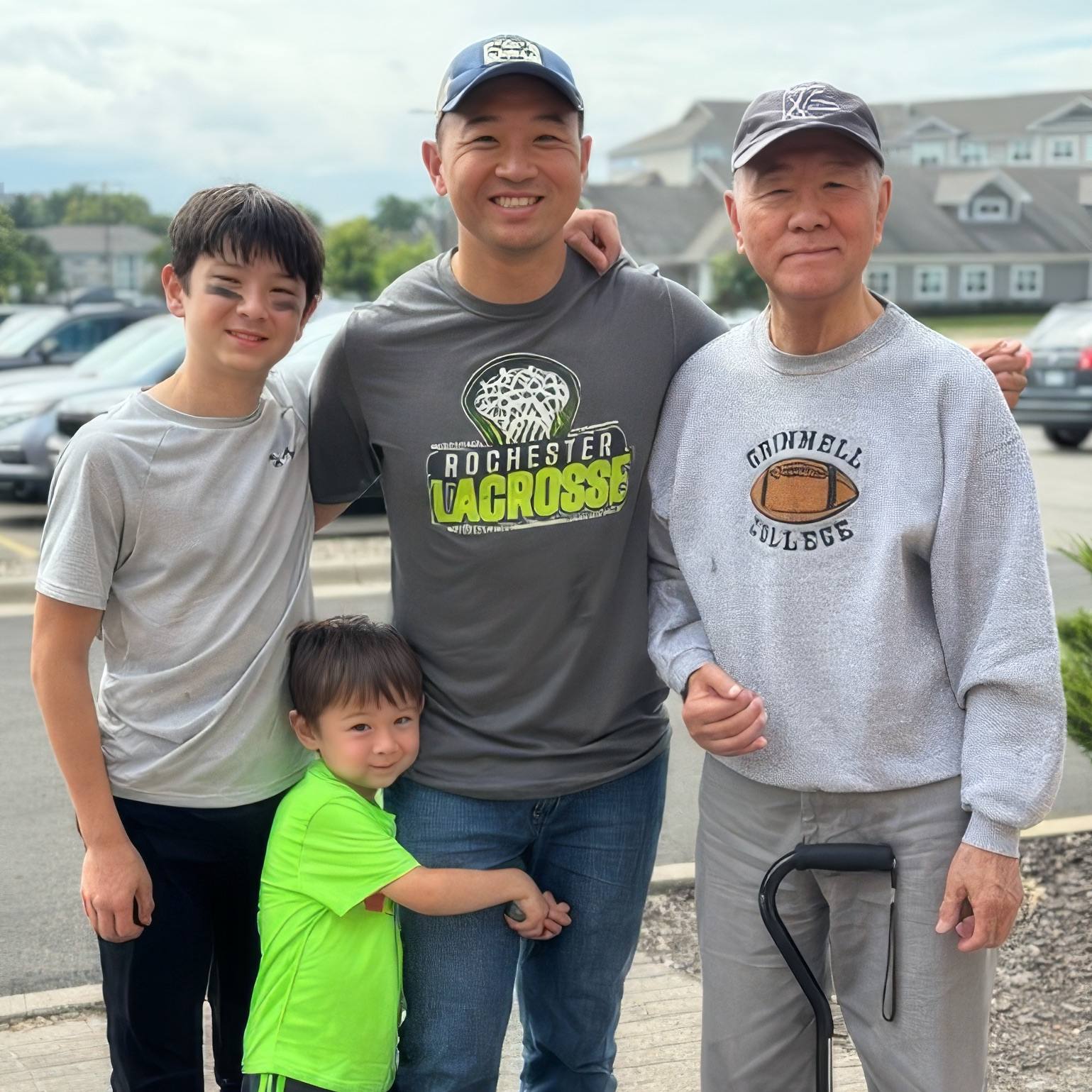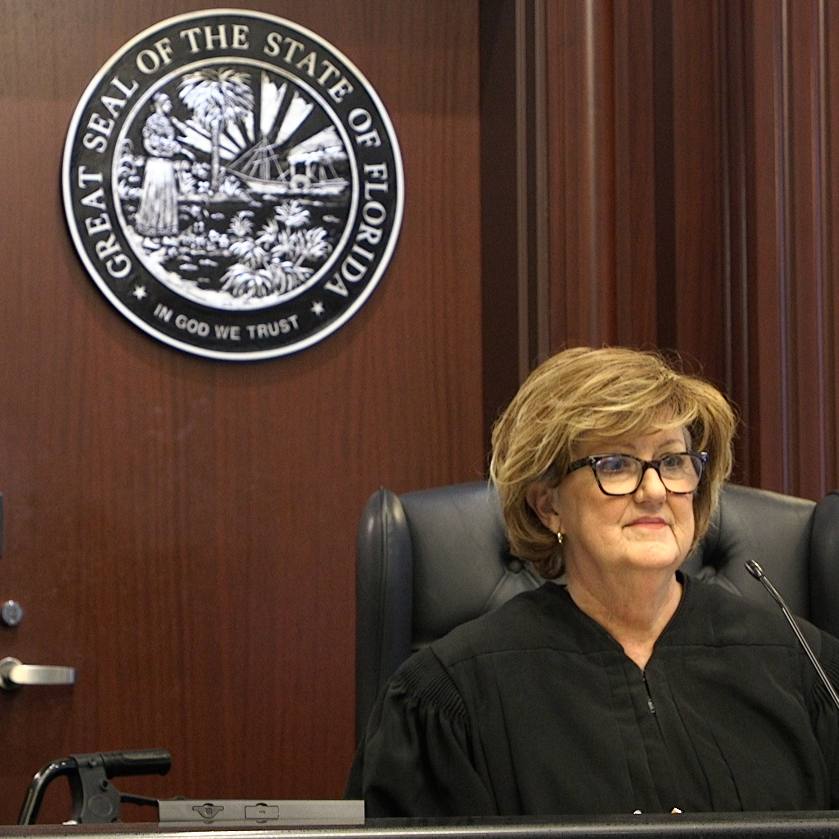It was 2012, and Beth Spreitzer was busy with life. Mothering her fourth-grade daughter and taking care of a household left no time to get sick. However, after experiencing what she thought were too many common symptoms – fatigue, chills, fever – and not improving, Beth thought something else must be wrong.
"In the past, the most I'd ever have to fight off was a cold. I attributed my recent symptoms to being busy and getting older," Beth says.
During a routine visit, her gynecologist noticed her thyroid was inflamed and tender to the touch. This butterfly-shaped gland rests in the bottom of the neck, around the windpipe. It has two side lobes that you can't feel when the thyroid is its normal size. The gland secretes hormones that regulate heart rate, blood pressure, body temperature and weight.
Her doctor asked if she'd been sick. Beth confirmed that yes, she suffered from a fever and chills a couple of weeks earlier and even had a cold sore, which for her was uncommon. But she admits she didn't think much about the conversation afterward.
Soon though, Beth says she began fighting the urge to nap in the carpool line at school, and by early evening, looked forward to sleeping. She attributed the fatigue to having a full plate. Seeking a remedy, she visited another local physician, who diagnosed her with mononucleosis, a contagious and common virus.
But after a few weeks with no improvement, Beth was referred to an ear, nose and throat specialist. There, she was told that she had cancer – lymphoma – and that she "was going to die." She left his office shaking, she says.
A family friend who worked in cancer research recommended Beth head to Mayo Clinic's campus in Jacksonville, Florida.
"The second I walked through those doors, my life changed for the better," she says.
Life-changing care
During her visit to Mayo Clinic, Beth met with several physicians, including hematologist Lawrence Solberg Jr., M.D., Ph.D.; John Casler, M.D., an ear, nose and throat specialist; and Victor Bernet, M.D., an endocrinologist. Dr. Bernet biopsied a lump in Beth's thyroid as well as lymph node in her neck. Within hours, the team members gave Beth an accurate diagnosis – thyroid cancer.
Thyroid cancer is the most common type of endocrine cancer, and the American Cancer Society estimates that nearly 62,500 new cases will be diagnosed in 2016. The disease is three times more likely to occur in women than men. The risk peaks in women in their 40s and 50s, and men, in their 60s and 70s. Family history also increases the risk. The lifetime risk of developing thyroid cancer is 1.1 percent, according to the National Cancer Institute.
There are four types of thyroid cancer. The most common – papillary carcinoma, is treatable. Unfortunately, Beth was diagnosed with medullary thyroid carcinoma, which develops in the thyroid gland and is more aggressive. Only about 4 percent of all thyroid cancers are medullary, and it typically spreads to lymph nodes and other organs.
"Aggressive, spread, cancer … those words can be haunting," Beth says. "But I learned from Dr. Bernet that our hope is try to treat it like a chronic disease."
After hearing the diagnosis, Beth was ready to cancel her family's summer trip but doctors encouraged her to carry on.
"Dr. Casler was comforting to not only me as the patient, but to my family as well. He assured all of us, every step of the way, that he would take the best possible care of me." – Beth Spreitzer
"Dr. Casler strongly encouraged me to still go on vacation and have fun – we'd tackle this upon our return. And in the meantime, he would make all the necessary arrangements for me," she says. "Dr. Casler was comforting to not only me as the patient, but to my family as well. He assured all of us, every step of the way, that he would take the best possible care of me."
In the meantime Beth researched and read about her condition, becoming mentally prepared. "I really tried as hard as I could to follow his advice, to enjoy life and take my mind off of what was to come," she says.
 Soon after her return to Jacksonville, Beth underwent a full thyroidectomy and neck dissection. Dr. Casler removed 68 lymph nodes in and along her head, neck, collarbone, ear, carotid artery and vocal cords. Of those, 58 were cancerous.
Soon after her return to Jacksonville, Beth underwent a full thyroidectomy and neck dissection. Dr. Casler removed 68 lymph nodes in and along her head, neck, collarbone, ear, carotid artery and vocal cords. Of those, 58 were cancerous.
During her five-day hospital stay, Beth remembers a follow-up visit from Dr. Solberg, who now is retired. "My dad passed away 10 years ago," she says. "Having Dr. Solberg at my side was so comforting; it felt like my dad was right there."
Following surgery, the team of doctors, which by then also included Michael Menefee, M.D., a hematologist/oncologist, and Steven Buskirk, M.D., a radiation oncologist, advised that due to the extensive lymph node involvement and cancer type, Beth should receive a daily dose of targeted external beam radiation to her head and neck for six weeks.
Beth recalls expressing her gratitude to Dr. Casler and the team.
"What do you say or do to someone who saves your life?" she says. "All he did was smile and tell me he'd love a Christmas card every year."
A two-year reprieve
After therapy, Beth went back to her active lifestyle with periodic blood tests to check calcitonin and carcinoembryonic antigen levels, two proteins that are usually high in patients with medullary cancer.
About two years after surgery, Beth's tumor markers began to rise.
"I was devastated," says Beth. "I was offered a chemotherapy drug option targeted especially for medullary thyroid cancer, but there were so many side effects. I couldn't believe it already was time for such an option. Not liking the chemo idea, I asked if there were any other options – something outside the box."
Dr. Menefee shared details about a two-year immunotherapy clinical research trial being conducted by the National Institutes of Health. The clinical trial involved receiving an experimental vaccine every month for three months. Then, patients receive the vaccine every other week for the next three months, followed by monthly vaccines for the remaining year. The following year the vaccine is received quarterly.
"We are so fortunate to have exceptional and caring specialists on this cancer right in our backyard at Mayo Clinic. Without these physicians ... I wouldn't be here." - Beth Spreitzer
Made with genetically modified baker's yeast (Saccaromyces cerevisiae), the vaccine is designed to hone in on cells that produce the CEA protein that is indicative of medullary cancers. The goal would be to have Beth's immune system respond and then make immune cells that would recognize and attack her tumor cells directly.
Advocating for others
Today, Beth takes her illness one day at a time and travels to National Institutes of Health in Maryland every few months for the vaccine trial. She is grateful for the team of physicians watching out for her Mayo Clinic.
"We are so fortunate to have exceptional and caring specialists on this cancer right in our backyard at Mayo Clinic," Beth says. "Without these physicians at Mayo Clinic, I wouldn't be able to swallow or speak. I wouldn't be here."
In retrospect, Beth walks through the chronology of some of her symptoms – fever, extreme fatigue, leg cramps, inflamed lymph nodes and tightening in her chest. Because they occurred over time, Beth's thyroid cancer disguised itself as the common flu or a bad cold. Now living with stage IV metastasized medullary thyroid cancer, she explains she manages her health "like a business" and is more aware of her body than ever before.
"Listen to your body, and don't take your symptoms for granted," Beth advises. "Be your own advocate. Research and seek a second option if in doubt. These actions can save your life."
And most importantly, she says, go to Mayo Clinic.
"Mayo Clinic is exceptional – from the gentleman who greets me at the front doors of the Mayo Building to all the medical staff," she says. "Whether you have a life-threatening disease or are just seeking the best medical advice, you have to schedule a visit at Mayo. If you're worried what your insurance will or won't cover, just call them. You're worth it."
HELPFUL LINKS
- Learn more about thyroid
- Explore the Mayo Clinic Cancer Center.
- Request an appointment.








